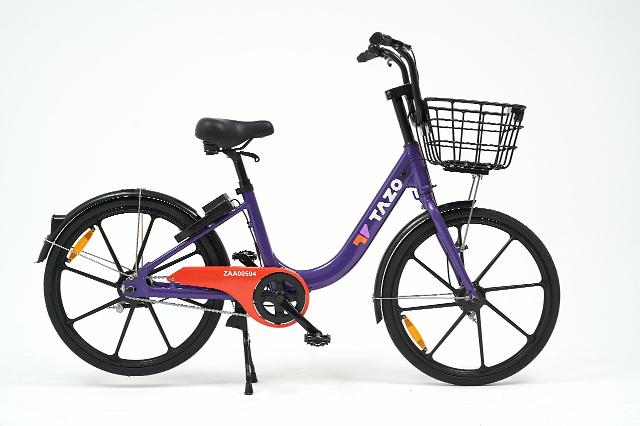
[Courtesy of KT]
"Ttareungi," a bicycle-sharing public service launched by Seoul City in 2015, is the first and most successful mobility-sharing business model in South Korea. About 37,000 bicycles were used more than 23.7 million times in 2020, up 24 percent from a year ago. A ride costs 1,000 won ($0.88) per hour.
KT has aggressively expanded the area of its service in Seoul's satellite cities to check domestic rivals such as Kakao Mobility, which benchmarked Seoul's service to launch Kakao T Bike, a mobility service using electric bicycles, in 2019. Local city governments have competitively adopted bicycle-sharing services.
KT said in a statement on March 15 that the company partnered with Omnisystem, a smart platform solution developer, and Goyang City, a satellite city northwest of Seoul, to deploy 400 "Tazo" bicycles near subway stations and populated areas. The mobility service will be run for free until April 11. About 1,000 bicycles will be added on April 12 for a full service for a fee of 500 won per 20 minutes.
"Through Tazo, a bicycle-sharing service that does not require dedicated stations, we are now operating KT's green bike-sharing platform in Goyang," KT's AI and digital transformation business head Lim Chae-hwan was quoted as saying. He said that KT would utilize various platforms to provide a differentiated service.
Tazo was first deployed in Suwon south of Seoul in October. Unlike other services, users do not need to return bicycles to designated stations. Workers will retrieve bicycles at night and deploy them at subway stations and other crowded areas. Suwon runs about 3,000 Tazo bikes.
KT has diversified mobility services through a multiple-track strategy. In 2019, the company partnered with Daelim Motorcycle, a domestic motorbike maker, and AJ Bike, a motorbike rental service operator, to develop electric scooter rental service business models for courier workers and food deliverymen.




